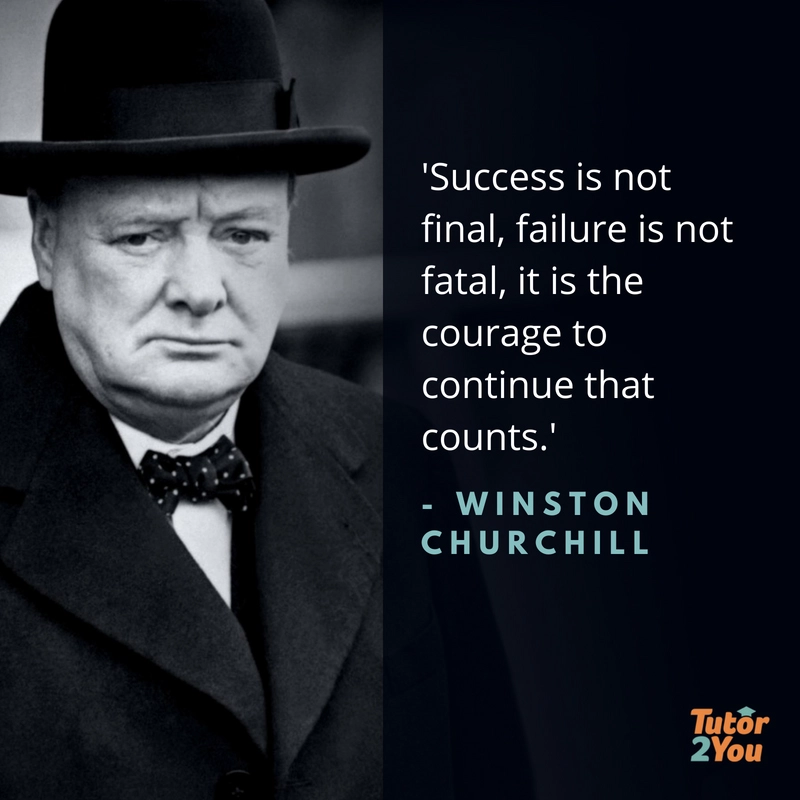
The 7 Habits Of Successful Students
Reaching for your dreams and being called successful is the aim of the modern student, but how do students become successful, on what grounds can success be measured?
Habits formed by students that lead to success are the key to this sought-after achievement. Success, an abstract facet of life, is challenging to measure and achieve. It can be motivated by developing positive habits. These habits are not necessarily linked to learning facts and academic performance but are definitely part of living a successful life.
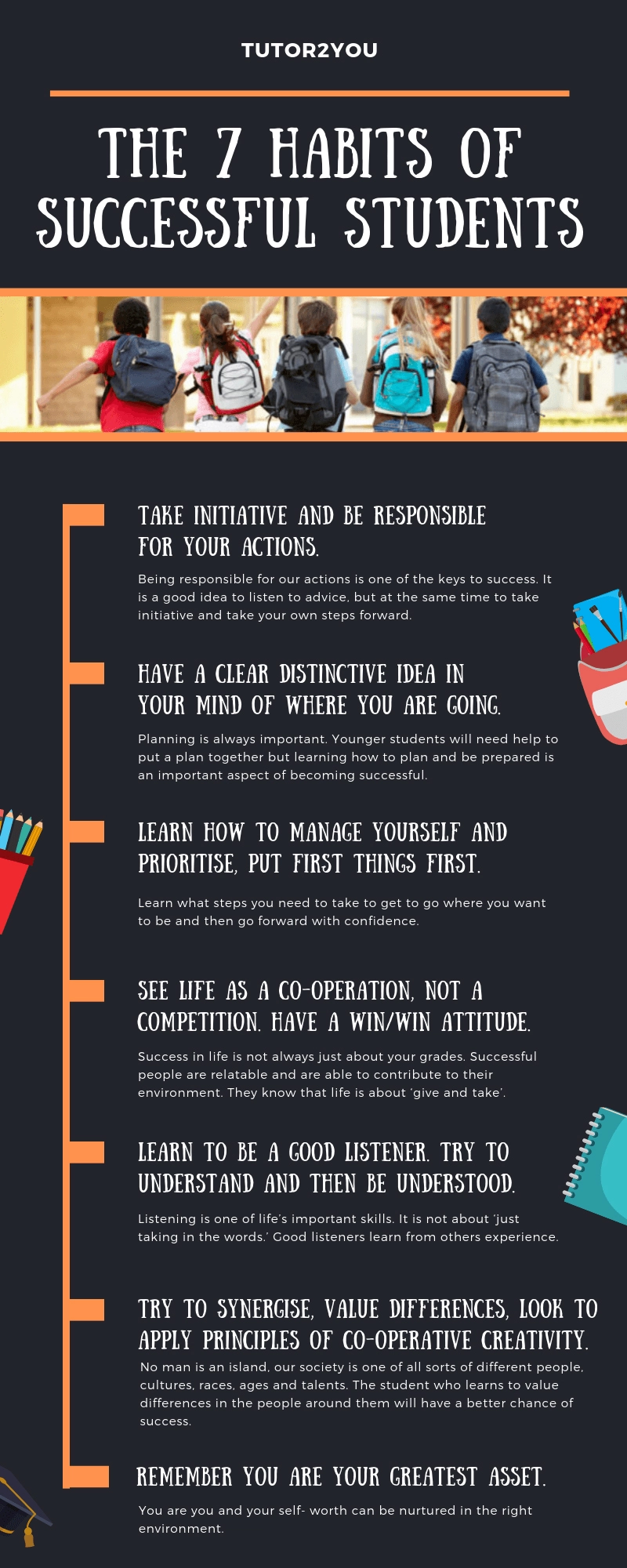
The following seven habits of successful students is based on Stephen Covey's best-selling novel and are worth implementing to achieve success. These habits require a change in your pattern of thinking and may take time to implement, but as many famous men and women will testify, each of these habits is worth remembering as a key to becoming a successful student.
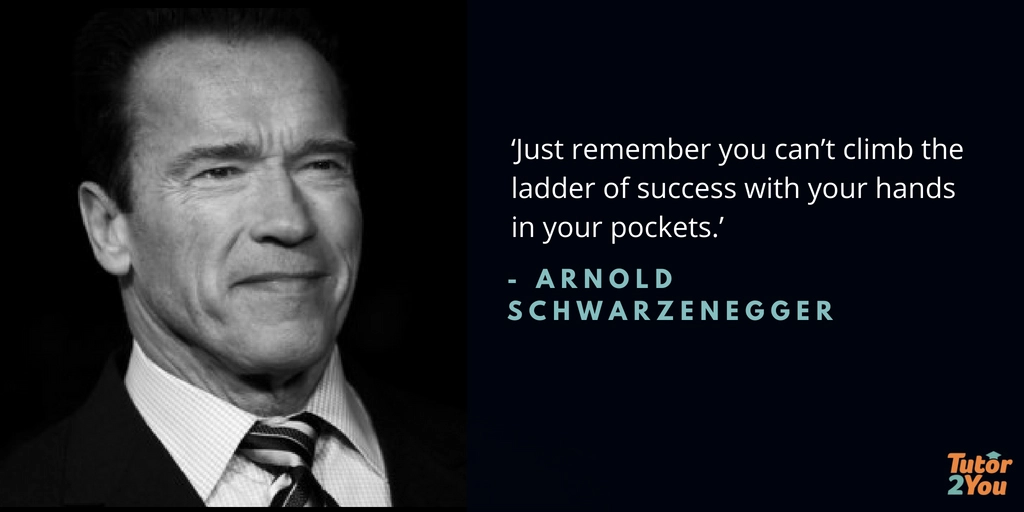
1. Take initiative and be responsible for your actions
‘Just remember you can’t climb the ladder of success with your hands in your pockets.’ Arnold Schwarzenegger
The student who takes personal initiative will usually find and travel on the road to success. It could be a road that is potted with mistakes, but it is through trying new things and learning about life, that the student becomes better at becoming successful.
Being responsible for our actions is one of the keys to success. It is a good idea to listen to advice, but at the same time to take initiative and take your own steps forward. The actions you take responsibility for will contribute to your personal determination to be successful.
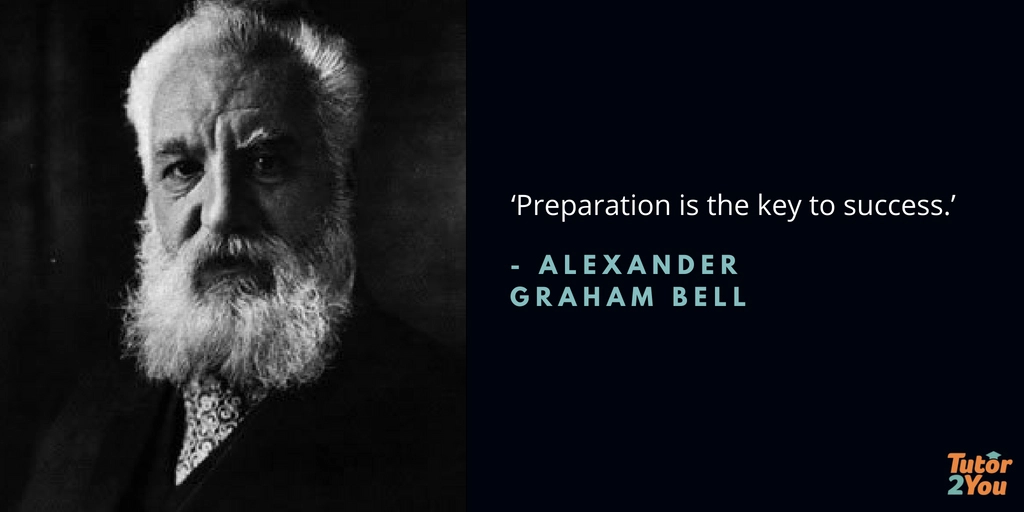
2. Have a clear distinctive idea in your mind of where you are going
'Preparation is the key to success.' Alexander Graham Bell
Planning is always important. Younger students will need help to put a plan together but learning how to plan and be prepared is an important aspect of becoming successful. Parents and teachers can set good examples of planning and refer to planned activities as a part of being organised.
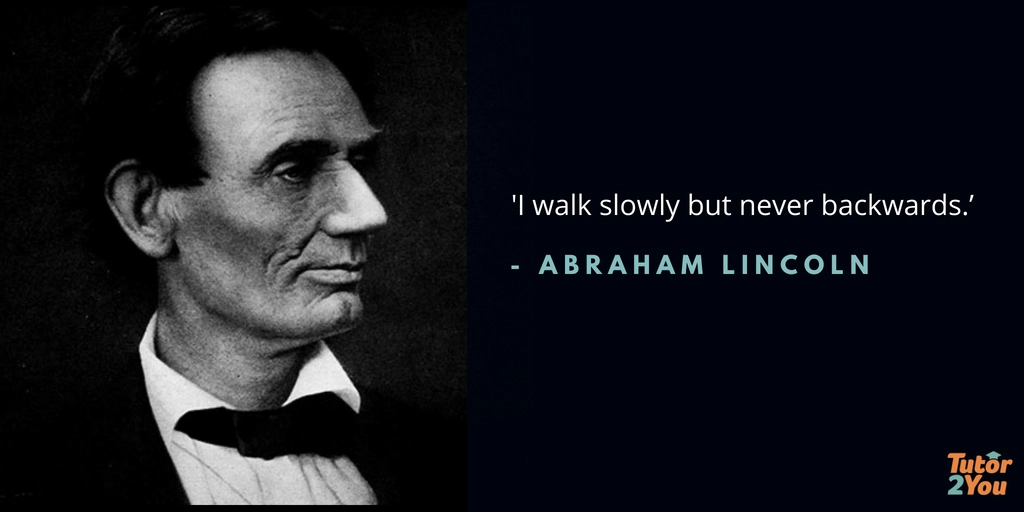
3. Learn how to manage yourself and prioritise, put first things first
'I walk slowly but never backwards." Abraham Lincoln
This habit of success is vital because there is no point in knowing where you are going if you have not mapped out the journey. Learn what steps you need to take to get to go where you want to be and then go forward with confidence. It may be a simple activity like attending a sports function or a greater endeavour like being accepted at a university, but the path that is mapped out will be clearer to follow.

4. See life as a co-operation, not a competition. Have a win/win attitude
‘You might be the change you wish to see in the world.’ Mahatma Gandhi
Success in life is not always just about your grades. Successful people are relatable and are able to contribute to their environment. They know that life is about ‘give and take’ and this starts with family life and moves on to school and adult life. Students of all ages need to be encouraged to participate and to give as well as get, from the world they live in.

5. Learn to be a good listener. Try to understand and then be understood
‘Educating the mind without educating the heart is no education at all.’ Aristotle
Listening is one of life’s important skills. It is not about ‘just taking in the words.’ A good listener knows how to be empathetic to the people they meet and to interact on a heart level. Good listeners learn from others experience. They are prepared to hear the truth as they seek to be successful through understanding others and letting other people assist their personal growth.
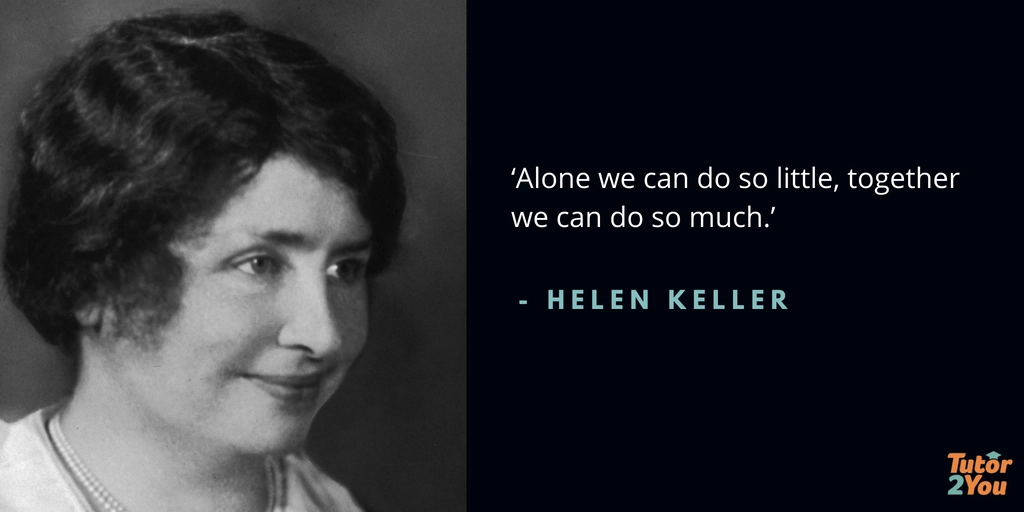
6. Try to synergise, value differences, and apply principles of co-operative creativity
'Alone we can do so little together we can do so much.' Helen Keller
No man is an island, our society is one of all sorts of different people, cultures, races, ages and talents. The student who learns to value differences in the people around them will have a better chance of success. Many students are exposed to teamwork through sporting activities and group projects. These kinds of activities are the best way for children to learn to appreciate one another and to take advantage of other’s strengths, while they add their own qualities to the group.
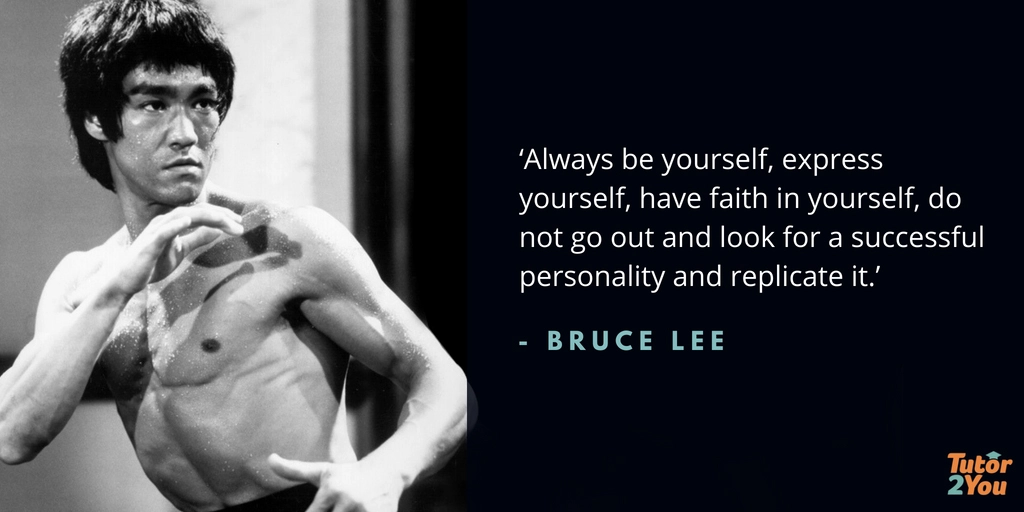
7. Remember you are your greatest asset. Keep yourself sharp, take care of your physical, spiritual, emotional and mental well-being
‘Always be yourself, express yourself, have faith in yourself, do not go out and look for a successful personality and replicate it.’ Bruce Lee
The seventh habit towards success sums up all the others. Remembering you are your own greatest asset is the key to success. You are you and your self- worth can be nurtured in the right environment.
Parents and educators can have the greatest influence and participate in the successful growth of the student. Encouraging children to value themselves, for their strengths, and guide them to build successful habits is the force behind adopting all the other six successful habits. Encourage students to be healthy and confident and this will help them face challenges.
A mentor who understands the seven habits of the successful student will recognise the need to allow children to be themselves and not have to reach for the unattainable, but rather stretch themselves on a personal level to try and implant healthy habits of success into their life skills.
Key Takeaways
- It is not always about winning.
- A successful person is often the one who has not given up, but recognised that through successful habits and learning from mistakes, true success is achieved.
- The seven habit of successful students do not mention top marks or winning at all costs.
- It is personal growth, self-worth and determination that count.
